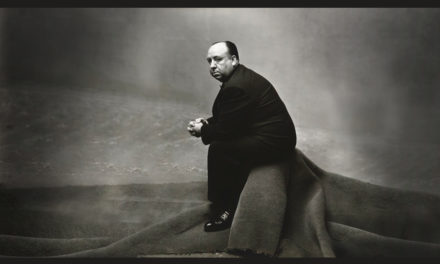Within the first few minutes of Todd Haynes new giddy melodrama ‘May December’ there is a dramatic zoom accompanied by a deliciously abrasive musical sting plucked from the soundtrack of the 1971 film ‘The Go-Between’ as Julian Moore dramatically states “I don’t think there is going to be enough hot dogs!” From this moment on the uniquely heightened tonal elements of the film are engaged and Haynes treats us to a beautifully funny, provocative and emotionally complex journey. The journey is that of actress Elizabeth Berry (Natalie Portman) who goes to Georgia to meet tabloid fodder Gracie Atherton-Yoo (Julian Moore) to research her for a role twenty years on from a scandal involving her and her now partner Joe Yoo (Charles Melton). The film is partially inspired by the widely publicised grooming case of teacher Mary Kay Letourneau.
Haynes sights ‘Manhatten’, ‘Lolita’ and ‘The Graduate’ as key inspirations as well as Bergman’s ‘Persona’, which feels particularly front and centre. Yet my pervading point of reference was that of the work of Pedro Almodovar, whose artful renditions of the telenovela draw from the same well, though ‘May Decembers’ built reality is perhaps more at home in the world of the lifetime movie. The way in which the film paints in brash tonal strokes works to draw out the more complex human angle of what could be a salacious and one-dimensional narrative. Its stylistic flourishes work to hold together such a malignant character study that methodically unveils a depth of human experience until victimhood rears its ugly head and we are all devastatingly implicated.

The screenplay by first-timer Sammy Burch deserves equal praise. The writing is incredibly clever without ever being showy, Julian Moore described the screenplay as being ‘muscular’ and I think that is a perfect summation. There are really excellent smaller details that place every character, no matter how insanely unsympathetic, within a lived and believable reality. My favourite of these details is the pastry business that Moore’s character runs which is this delightfully telling side story that runs through the narrative. Another element of the screenplay that should be acknowledged is the situational storytelling at play with each scene having a great rhythm and tempo dictated by location, whether it be a flower arranging class or a fitting for a prom dress.
The film is shot by Kelly Reichardt’s long-time DOP Christopher Blauvelt in his first collaboration with Haynes and the results speak for themselves. There is some really lovely simple blocking and camera work as well as just this glossy, boarding-on trashy look to the whole film that works well in hiding the film’s deadly edges. The production itself is said to have had a very quick turnaround in getting made on a rather small budget and I think it’s a testament to Haynes and his team’s technical abilities that the end result is so accomplished.
“Its stylistic flourishes work to hold together such a malignant character study that methodically unveils a depth of human experience until victimhood rears its ugly head and we are all devastatingly implicated.”
‘May December’ is a study of how moral heinousness can be mentally circumnavigated and rationalised in order to continue on living. There is a horrible nicety to every social encounter embedded in a specifically queasy Americanness. Haynes evidently feels at home in the Douglas Sirk melodrama of it all but in ‘May December’ he has found a way to make it feel urgent, his stylistic comforts latching itself to the material effortlessly. It is a triumph of tonal filmmaking and easily one of the most pleasurable filmgoing experiences of the year so far.





